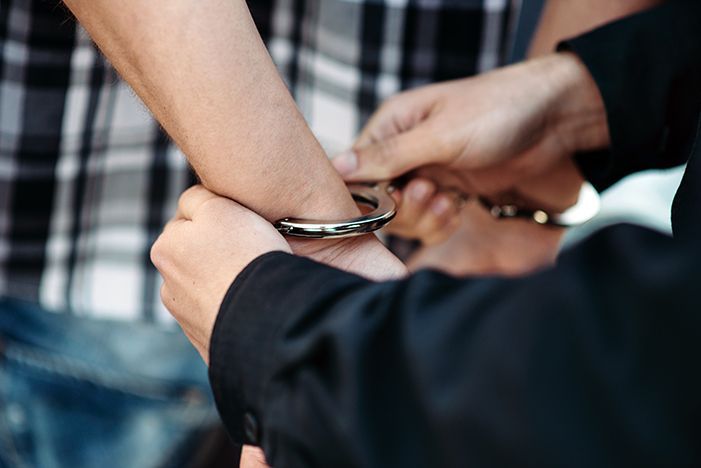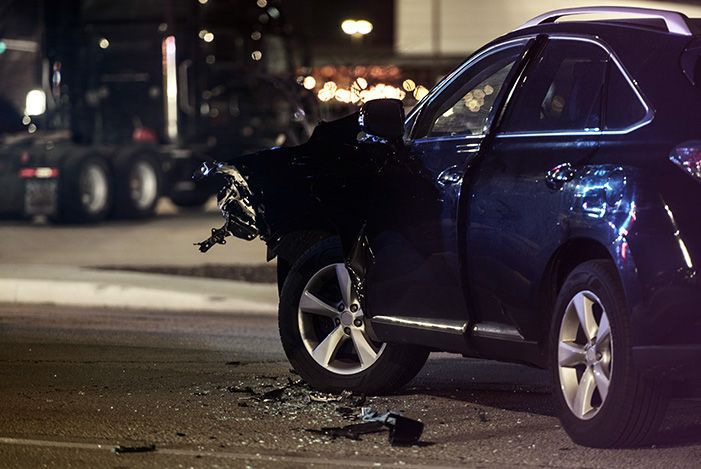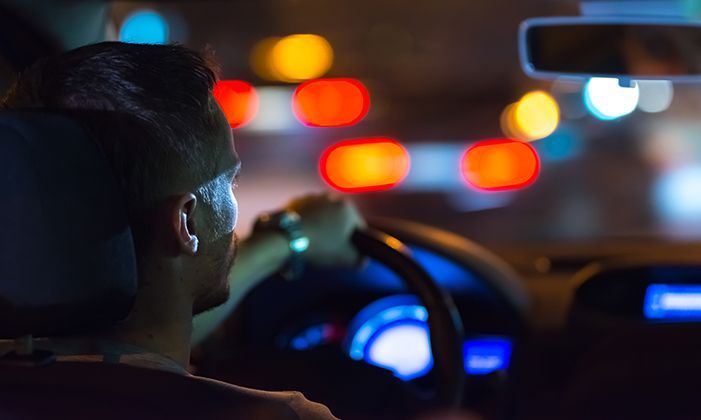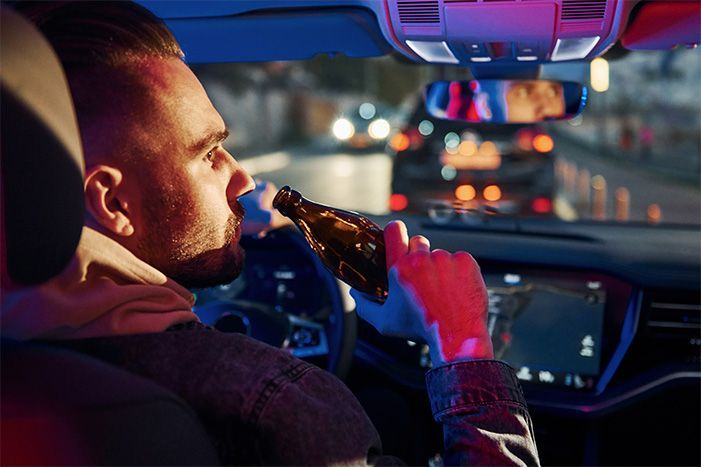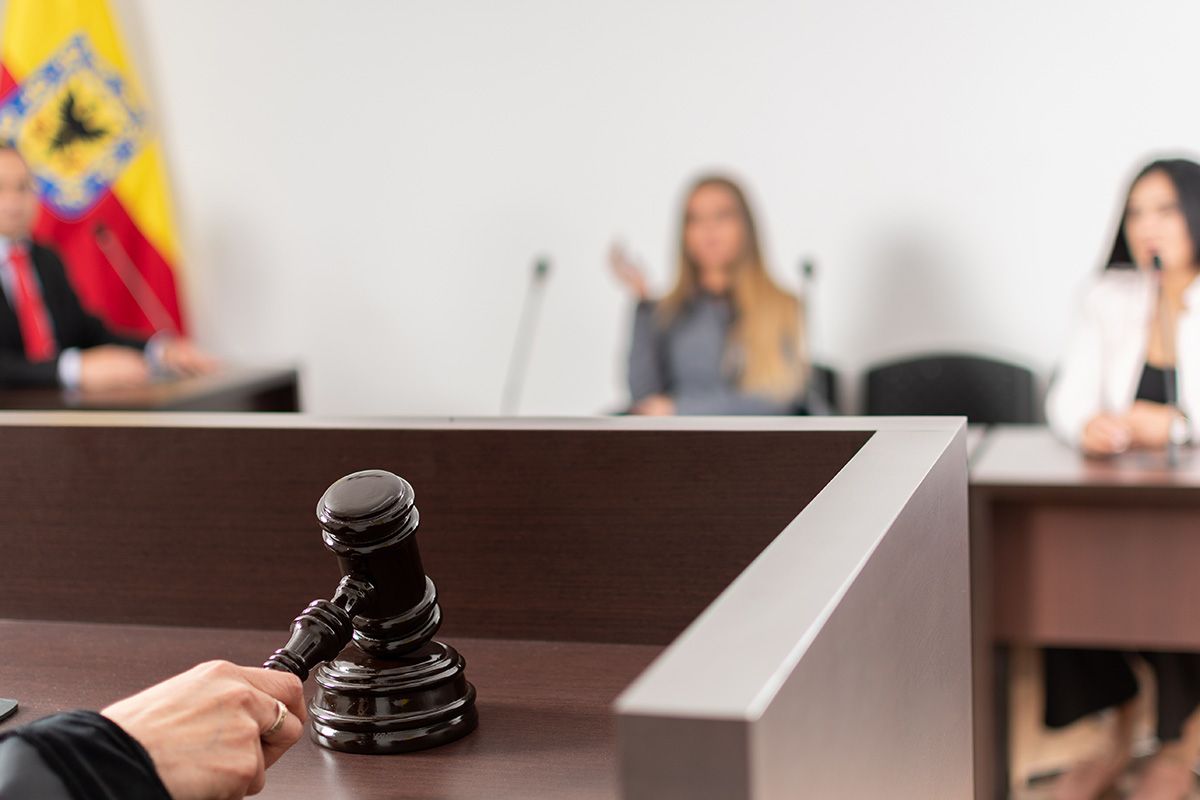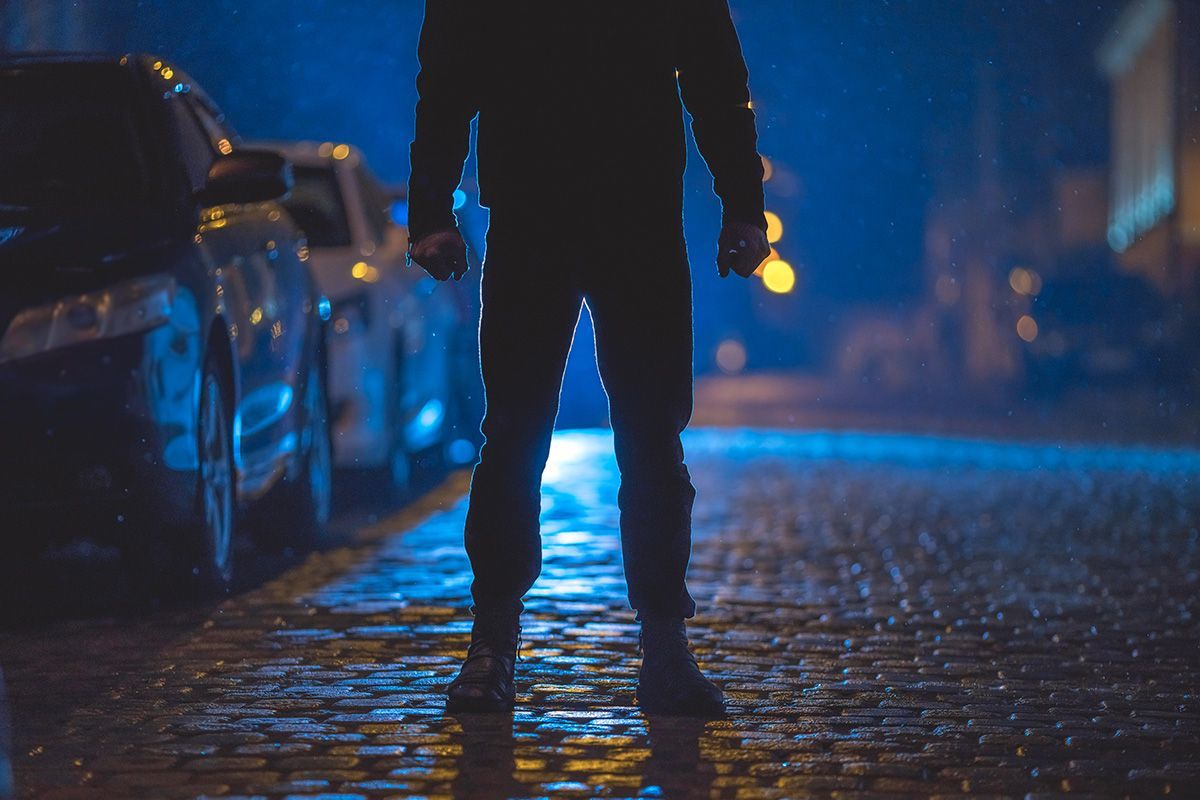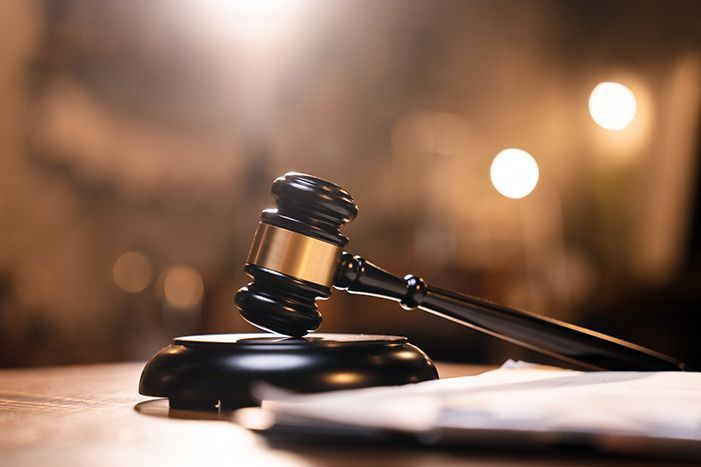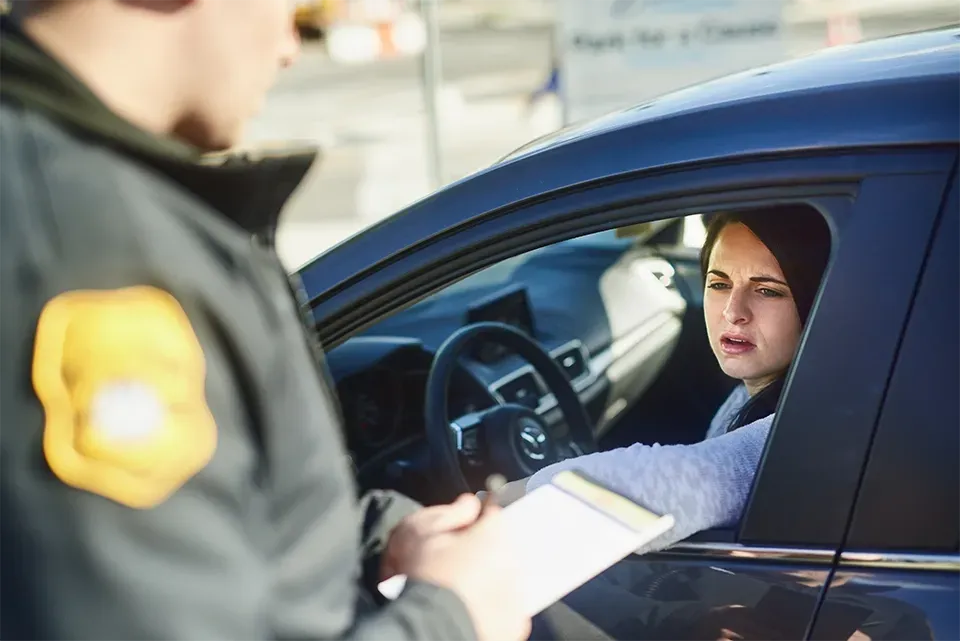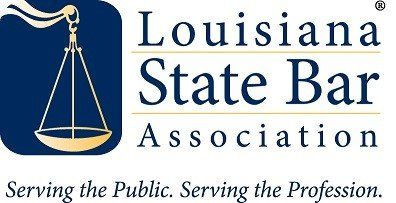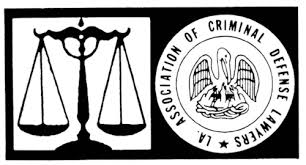What To Do If You Get Pulled Over for DUI
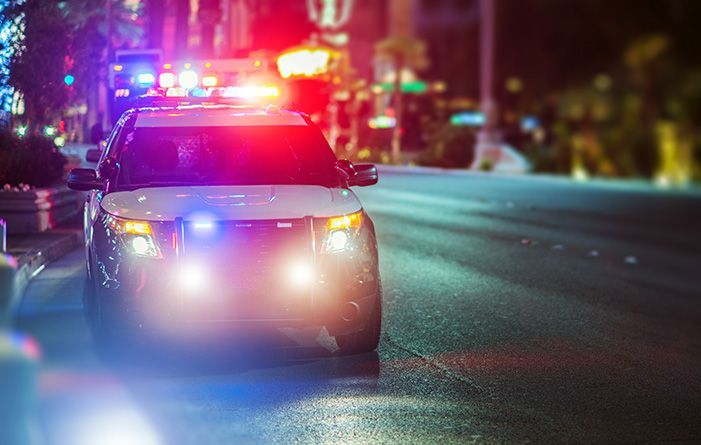
Getting pulled over for DUI (driving under the influence) can be a nerve-wracking experience. Whether you’ve had a drink or two or you’re completely sober, knowing how to handle this situation and understanding the procedures involved in a DUI stop is important. Your actions during a DUI stop can significantly impact the legal outcome, so it’s important to understand your rights and responsibilities.
This article will guide you through what to do if you get pulled over for DUI.
Understanding Your Rights During a DUI Stop
When you're pulled over for suspicion of drunk driving, it's important to know that you do have some rights. The U.S. Constitution provides certain protections that apply even during a DUI stop.
Basic Constitutional Rights
You have the right to remain silent. This means you don’t have to answer questions about your drinking or driving habits. Remember, anything you say can be used against you in court.
You also have the right to refuse field sobriety tests (FSTs) and preliminary alcohol screening (PAS) tests. These tests are voluntary, and you can politely decline to participate without legal penalty.
Recording Rights and Limitations
In Louisiana and in many other states, you have the right to record your interaction with the police officer. However, it's important to do so safely and without interfering with the officer's duties. Inform the officer that you're recording, and keep your hands visible at all times.
Search and Seizure Rights
The Fourth Amendment protects you from unreasonable searches and seizures. This means the officer needs probable cause or your consent to search your vehicle. If asked for permission to search, you can politely decline.
Right to Legal Representation
You have the right to request a lawyer and have them present during questioning. It’s often wise to exercise this right, especially if you’re unsure about how to proceed.
Interacting with the Police Officer
How you interact with the police officer can significantly impact the outcome of your DUI stop. Here are some tips:
- Be respectful and courteous, but avoid being overly friendly.
- Do not become argumentative or aggressive.
- Keep your hands visible at all times.
- Don’t reach for anything in your car without the officer’s permission and avoid making any sudden movements.
- Hand over your driver's license, proof of insurance, and vehicle registration when asked by the officer.
- Avoid answering questions about drinking or driving. Instead, politely state that you’d like to speak with a lawyer.
- Don’t attempt to leave the scene or drive away.
Remember, the officer is observing your behavior, speech, and appearance for signs of intoxication. Staying calm and composed can work in your favor.
Field Sobriety Tests, Breathalyzer Tests, and Your Rights
Field sobriety tests (FSTs) and preliminary alcohol screening (PAS) tests (aka Breathalyzer tests) are commonly used during DUI stops. However, you should be aware that these tests are voluntary. In other words, you can refuse to perform them.
Field Sobriety Tests (FSTs)
Field Sobriety Tests typically include:
- Walk-and-turn test
- One-leg stand
- Horizontal gaze nystagmus (such as following the officer's pen with your eyes)
- Other coordination tests
While officers may ask you to perform field sobriety tests, these tests are designed to detect impairment but are not always accurate. Factors like physical conditions, nervousness, or even the road surface can affect your performance.
You have the right to refuse these tests, although your refusal can be mentioned in court and used against you.
Preliminary Alcohol Screening aka the Breathalyzer Test
The Preliminary Alcohol Screening (PAS) test, often called a roadside breathalyzer, is also voluntary. This handheld device is used to estimate your blood alcohol content (BAC). Like FSTs, you can refuse this test without automatic penalties, but your refusal can be mentioned in court and used against you.
Refusing FSTs or the PAS test may or may not lead to your arrest, but it can also limit the evidence the prosecution has against you. It's a strategic decision to weigh with the potential consequences.
Consequences of Refusing the Tests
You should understand that refusing these roadside tests doesn't mean that the police have to let you go free. If you refuse field sobriety tests or the preliminary breath test:
- Officers can still arrest you based on other signs of impairment
- Your refusal can be used against you in court
- Prosecutors may argue your refusal shows "consciousness of guilt"
- Officers may seek a warrant for blood testing
- Refusal may strengthen the officer's suspicion and determination to gather other evidence
Can You Be Arrested for Refusing to Perform Field Sobriety Tests or Take a Breathalyzer?
No, you cannot be arrested simply for refusing to perform field sobriety tests or take a breathalyzer test. However, officers need only probable cause, not definitive proof, to initiate DUI arrests. Refusing tests doesn’t eliminate other evidence of impairment that can justify an arrest, such as driving behavior, physical signs, or the officer’s observations.
So, while refusing the tests will not automatically result in your arrest, you can still be arrested if the officer has other reasons to suspect you're driving under the influence.
Tests That Cannot Be Legally Refused
If you're arrested under the suspicion of DUI, you will be required to submit to a chemical test under your state's Implied Consent Law. This can be:
- Breath test at the station (Intoxilyzer 9000)
- Blood test at a medical facility
- Urine test (in certain cases)
These tests are typically conducted at the police station.
Consequences for Refusing a Chemical Test After Your Arrest
- First Refusal (in Louisiana): 1-year license suspension, no hardship license for 90 days
- Second Refusal (in Lousiana): 2-year license suspension, no hardship license available
- Possible criminal penalties in some states
- Your refusal being used as evidence in court
- Possible forced blood draw if officers obtain a warrant
- Additional criminal charges in some jurisdictions
- Enhanced penalties if ultimately convicted of DUI
It's important to note that you don't have the right to consult an attorney before deciding whether to take the chemical test. You must decide quickly, and your refusal can be used against you at trial.
DUI Traffic Stops vs. DUI Checkpoints
When it comes to DUI stops and the law, there are differences between regular traffic stops and DUI checkpoints.
Regular Traffic Stops
Police must have "reasonable suspicion" to make a traffic stop. This could be:
- An observable traffic violation
- Erratic driving behavior
- A vehicle defect (like a broken tail light)
- A credible tip from a witness
Officers cannot stop vehicles randomly or based on hunches. They must be able to articulate specific reasons for the DUI stop.
DUI/DWI Checkpoints
Checkpoints are the only legal way police can stop vehicles without individual suspicion. The Supreme Court has ruled checkpoints constitutional if they meet specific requirements:
- Must be publicly announced in advance
- Must stop all vehicles or follow a neutral pattern (such as every third vehicle)
- Cannot single out specific types of vehicles or drivers
- Must be clearly marked as a police checkpoint
- Must minimize delay to drivers (typically 3 minutes or less)
- Must be staffed by certified law enforcement
- Must serve a public safety purpose
Louisiana has additional requirements for checkpoints, including supervisory oversight, written guidelines, and proper documentation of all stops.
DUI Investigations and Evidence
During a DUI investigation, officers gather various types of evidence:
- Field sobriety test results
- Preliminary alcohol screening results
- Officer observations (slurred speech, bloodshot eyes, etc.)
- Video and audio recordings
- Chemical test results (breath, blood, or urine)
All of this evidence can be used against you in court. However, an experienced DUI attorney can help challenge this evidence and build a strong defense strategy. The DUI police report is crucial in documenting the officer's observations and actions, providing a detailed narrative that can be analyzed to identify strengths and weaknesses in the case.
What to Do If You're Arrested for DUI
If you find yourself arrested for DUI or DWI:
- Remain calm and cooperate with the officer.
- Ask to speak with a DUI/DWI attorney as soon as possible.
- Understand that you will be required to take a chemical test.
- Request a copy of the police report and any evidence against you.
Remember, your actions and words during and after the arrest can significantly impact your case.
Seeking DUI Legal Help and Representation
If you’re arrested for DUI, it’s very important to seek the help of an experienced DUI defense attorney as soon as possible. A skilled attorney can:
- Help you navigate the legal process
- Challenge the evidence against you
- Build a strong defense strategy
- Negotiate a plea deal if necessary
- Represent you in court
A DUI attorney’s expertise can often make the difference between a conviction and a dismissal or reduced charge. If you are on probation for a prior DUI, you may face additional legal challenges and obligations, such as mandatory sobriety tests, which makes obtaining expert legal help from a DWI attorney even more critical.
Your Rights and Options if the DUI Stop Was Unjustified
If you believe the police officer stopped you without cause or abused their authority during the traffic stop, you should:
- Document everything while it's fresh in your mind, including officer names and badge numbers, patrol car numbers, time, location, and weather conditions.
- Preserve all evidence, including field sobriety test results, breathalyzer receipts, and any related paperwork.
- Consider filing a complaint with internal affairs or a civilian review board.
- Explore legal options with an attorney, understanding the grounds for legal action and evidence requirements.
Filing Complaints About Unjustified DUI Stops
If you believe you've experienced an unjustified DUI stop in New Orleans, you can file complaints about officer conduct through two main avenues:
Internal Affairs Division
The Internal Affairs Division (IAD) of the Public Integrity Bureau investigates allegations of police misconduct. For DUI stops, this might include:
- Stops made without reasonable suspicion
- Inappropriate officer conduct during the stop
- Violation of departmental procedures
- Discrimination or bias in enforcement
To file a complaint with Internal Affairs in New Orleans, you can visit the Public Integrity Bureau office in person, call their hotline at (504) 658-6800, submit a complaint through the NOPD website, or mail a written complaint to their office.
Office of the Independent Police Monitor
The New Orleans Office of the Independent Police Monitor serves as an independent, civilian oversight agency. This office:
- Reviews complaints against police officers
- Monitors internal investigations
- Makes recommendations for policy changes
- Provides public reports on police conduct
The Independent Police Monitor can help ensure your complaint receives proper attention and investigation.
Important Documentation for Complaints
When filing a complaint about an unjustified DUI stop, include:
- Date, time, and location of the incident
- Officer's name and badge number (if known)
- Patrol car number
- Any witnesses' contact information
- Copies of related documents (tickets, citations, etc.)
- Photos or videos if available
Protecting Your Rights While Ensuring Public Safety
Navigating a DUI stop requires balancing your rights with your responsibilities:
Know Your Rights
- You have the right to remain silent
- You have the right to refuse certain roadside tests
- You have the right to record the encounter
- You have the right to legal representation
Understand Your Responsibilities
- You should cooperate with lawful orders
- You should provide basic documentation when asked
- You should speak and act respectfully during stops
- If arrested, you will need to submit to chemical testing
Remember the Three C's
If stopped, remember the three C's:
- Stay Calm.
- Be Courteous.
- Be Careful with your words and actions.
Conclusion
Being pulled over for a DUI can be a stressful experience, but knowing your rights and how to handle the situation can make a significant difference in the outcome. Remember, your actions during the stop and immediately after can have a substantial impact on your case.
If you or a loved one needs help defending a charge related to a DUI or DWI in New Orleans, contact experienced DWI attorney Lance J. Robinson. With the right legal representation, you can protect your rights and work towards the best possible outcome for your case.
